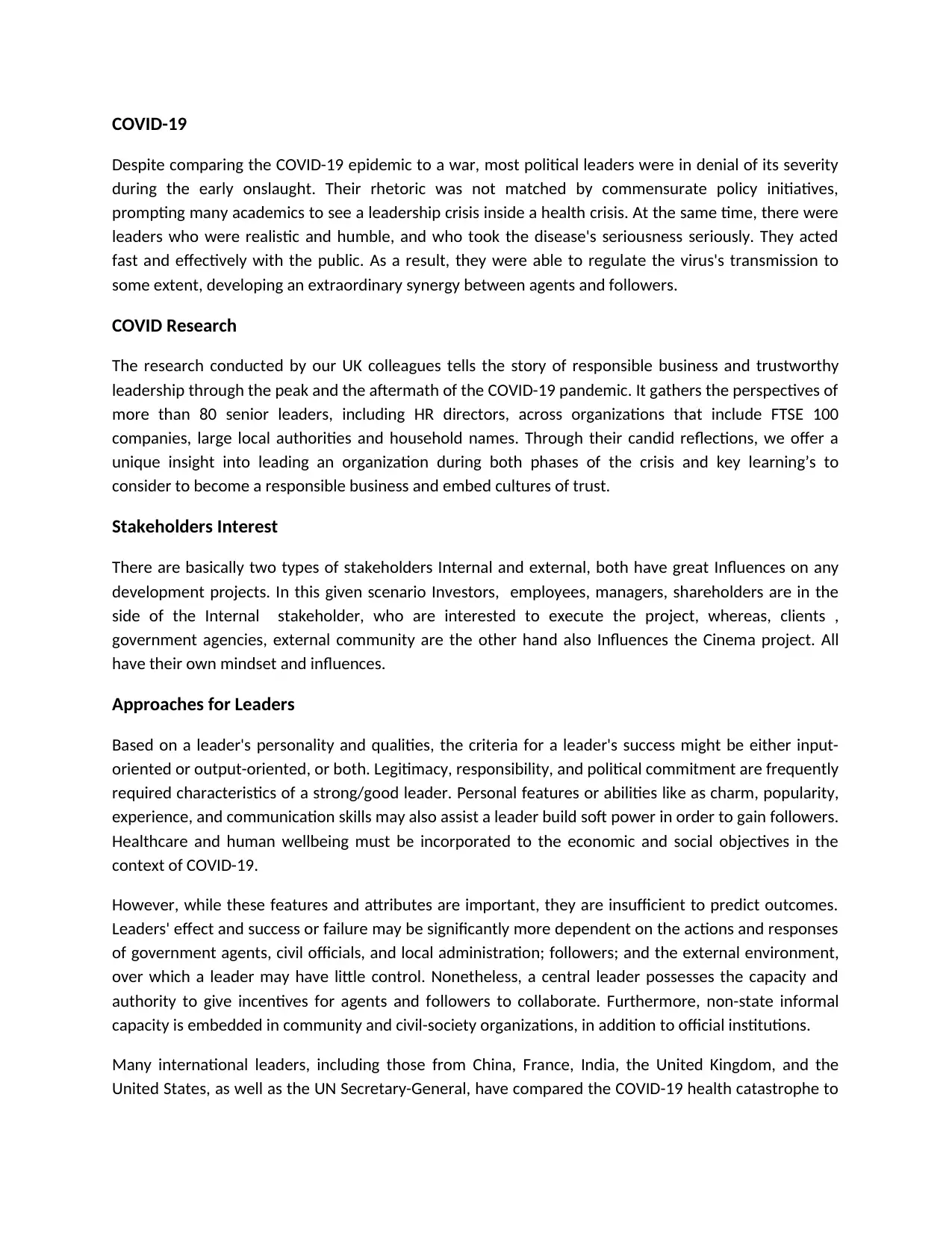COVID-19 Leadership and Stakeholder Management: A Crisis Analysis
VerifiedAdded on 2022/09/02
|2
|593
|20
Report
AI Summary
This report examines leadership strategies and stakeholder management during the COVID-19 pandemic. It analyzes the responses of leaders, the impact on stakeholders (internal and external), and the effectiveness of crisis management approaches. The report highlights the importance of responsible business practices and the need for leaders to foster trust. It also discusses the 'war analogy' used by leaders to emphasize the urgency of the situation, including the need for advanced planning, coordinated command, and public support. The report emphasizes the importance of healthcare and human wellbeing, in addition to economic and social objectives. It concludes by discussing the role of government agents, civil officials, and local administration in influencing outcomes, and the capacity of leaders to provide incentives for collaboration. The report draws on research from the UK, which includes the perspectives of over 80 senior leaders across different organizations.
1 out of 2



![[object Object]](/_next/static/media/star-bottom.7253800d.svg)